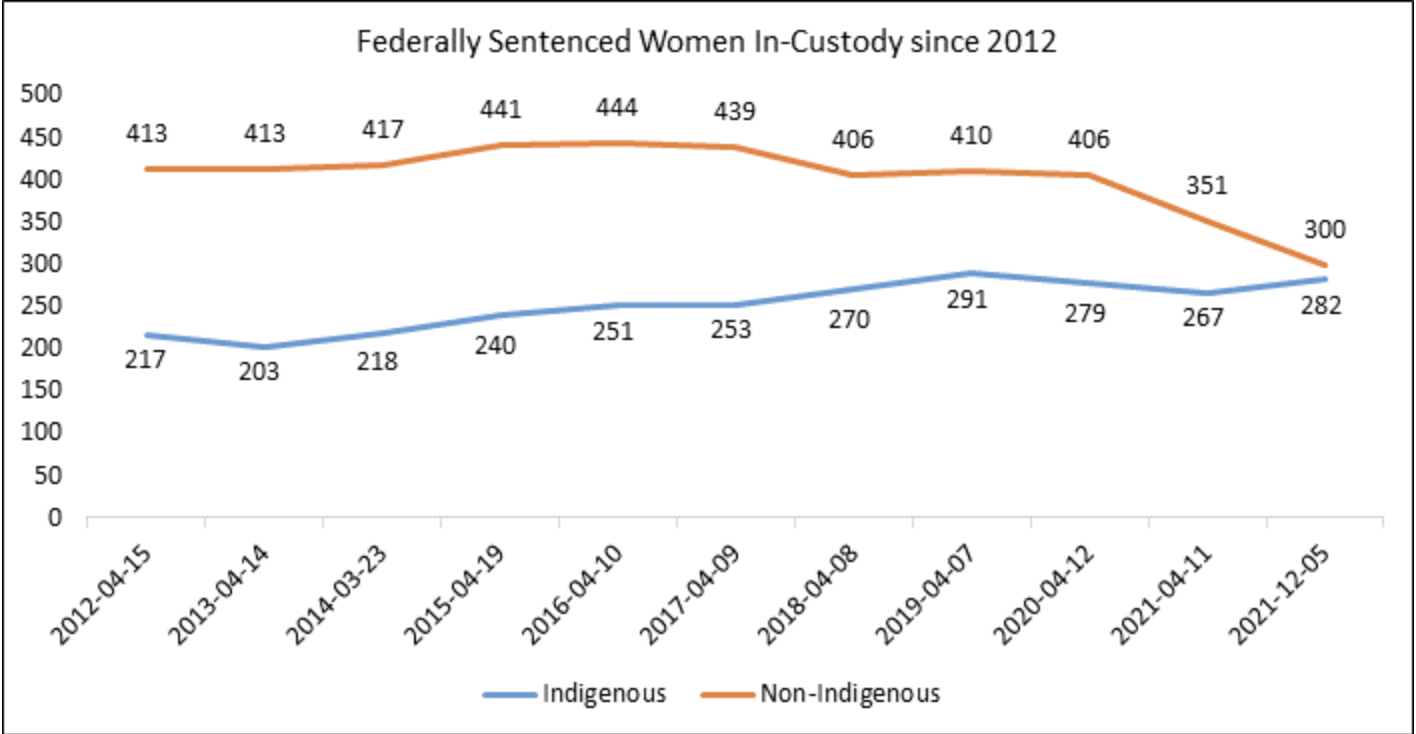
- Details
- By Jenna Kunze
The Canadian Government has proposed new legislation that, if passed, would work towards dismantling “systemic racism in Canada’s criminal justice system”—particularly impacting Indigenous women, who are disproportionately represented in the criminal justice system.
The bill, introduced in December 2021, was given urgency after an annual report of the Office of the Correctional Investigator Ivan Zinger found that Indigenous women make up nearly half of the population in federal custody, despite accounting for just 5% of the adult population in the country.
Prime Minister Justin Trudeau told reporters at an event in Newfoundland and Labrador yesterday that the overrepresentation of Indigenous women in federal prisons is “appalling,” and that the government’s bill should help the problem.
“Mandatory minimums do lead to an overrepresentation of vulnerable and marginalized people in our criminal justice system,” Trudeau told The Globe and Mail. “We know there’s much more to do and we will. Tackling systemic discrimination, which is real, is long, hard work that we are committed to.”
The proposed changes suggested in Bill C-5 would repeal 20 mandatory minimum sentences in the country’s criminal code, mostly for drug and gun crimes. The mandatory minimum penalties would remain for certain crimes, including murder, high treason, sexual offenses, impaired driving offenses, and certain firearm offenses.
“Sentencing laws that have focused on punishment through imprisonment have disproportionately affected Indigenous peoples, as well as Black Canadians and members of marginalized communities,” the bill’s backgrounder reads.
Indigenous peoples serving prison time in Canada has steadily increased over the last decade, whereas the non-Indigenous inmate population has decreased.
Zinger found that the proportion of Indigenous offenders admitted with an offense punishable by mandatory minimum penalties (MMPs) has almost doubled between 2007-2008 and 2016-2017, from 14% to 26%.
“Over-representation of Indigenous people in correctional settings remains one of Canada’s most pressing human rights issues, and is evidence of public policy failures over successive decades as no government has been able to stop or reverse this trend,” Zinger said in a statement.
Repealing certain sentencing requirements would allow judges flexibility to impose an appropriate sentence, which could mean more or less prison time than that previously directed by MMPs.
More Stories Like This
Native News Weekly (August 25, 2024): D.C. BriefsSAVE THE DATE: GVSU’s “Celebrating All Walks of Life” Powwow Set for April 4th
Monday Morning: (February 16, 2026): Articles You May Have Missed This Past Weekend
US Presidents in Their Own Words Concerning American Indians
Osage Nation Mourns the Passing of Former Principal Chief Jim Gray
Help us defend tribal sovereignty.
At Native News Online, our mission is rooted in telling the stories that strengthen sovereignty and uplift Indigenous voices — not just at year’s end, but every single day.
Because of your generosity last year, we were able to keep our reporters on the ground in tribal communities, at national gatherings and in the halls of Congress — covering the issues that matter most to Indian Country: sovereignty, culture, education, health and economic opportunity.
That support sustained us through a tough year in 2025. Now, as we look to the year ahead, we need your help right now to ensure warrior journalism remains strong — reporting that defends tribal sovereignty, amplifies Native truth, and holds power accountable.
 The stakes couldn't be higher. Your support keeps Native voices heard, Native stories told and Native sovereignty defended.
The stakes couldn't be higher. Your support keeps Native voices heard, Native stories told and Native sovereignty defended.
Stand with Warrior Journalism today.
Levi Rickert (Potawatomi), Editor & Publisher


